A Truth Untold
BREAKING: Court Rules Sony Music Can Sell Fake Songs Under Michael Jackson’s Name
Published
6 years agoon
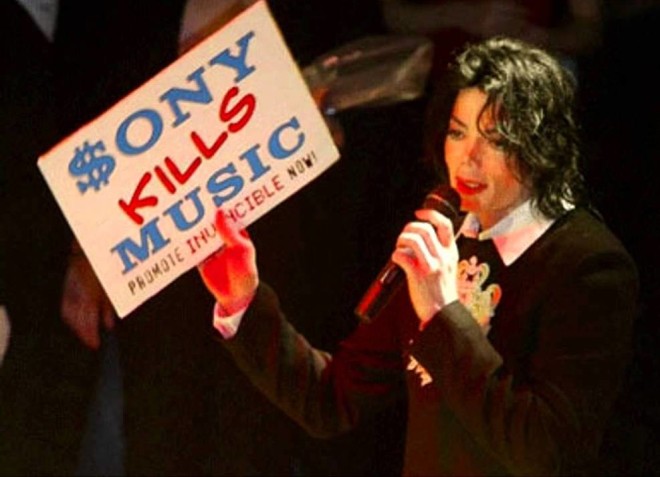
The Los Angeles Second District Court of Appeal has today ruled that Sony Music and the Michael Jackson Estate will no longer have to face the music in a lawsuit that alleges they released and advertised an album containing three fake songs attributed to the King of Pop.
The court dismissed the corporations from the lawsuit not because it felt the songs were real, but because it decided that they had a right to sell them under Jackson’s name even if they were fake. The court has certified this decision for publication, which means it becomes a precedent on which every subsequent record label, art dealer, or publisher can rely in arguing that they may attribute work to, let’s say, Prince, Picasso, or Mark Twain when they don’t know for sure who the singer, painter, or author is.
A little bit of backstory, if you’re hearing about this for the first time…
California-based consumer Vera Serova contends in her class action lawsuit that millions of consumers have been defrauded since the Jackson Estate and Sony Music Entertainment released the Michael album, including three songs—“Breaking News,” “Keep Your Head Up” and “Monster”—with fake vocals sung by a Jackson soundalike.
In December 2010, co-defendant in Serova’s lawsuit, Eddie Cascio, appeared on The Oprah Winfrey Show to defend the authenticity of the songs after several members of the Jackson family, a number of Michael’s former collaborators, thousands of fans around the world, and even one of the two Co-Executors of Jackson’s Estate claimed the songs were fakes.
Cascio and his collaborative partner James Porte, also a co-defendant, provided the songs to Sony in a lucrative deal between the label and their production company—Angelikson Productions—in mid 2010. When asked to respond to accusations that the voice on his songs was not Jackson’s, Cascio simply told Winfrey: “I can tell you that it is Michael’s voice.” Unchallenged by the talk show host for any kind of evidence beyond his word, Cascio added that Jackson had recorded the three songs—along with nine others that remain unreleased—in his New Jersey basement home studio in 2007. Serova contended Jackson did no such thing, subsequently slapping Cascio, Porte, and Angelikson Productions with an explosive fraud lawsuit.
Filed more than four years ago, the lawsuit also charged that Sony and the Jackson Estate engaged in commercial speech, falsely representing the three allegedly-fake songs as being sung by Michael Jackson. Serova filed claims against the companies under the Unfair Competition Law and the Consumers Legal Remedies Act.
So it’s been in court for four years? What have I missed?
In December 2016, lawyers for Sony Music and the Estate conceded that the songs might actually be forgeries.
“We are submitting now it may have turned out not to be [Michael Jackson], but there is no stipulation that at the time we made the statements we knew,” conceded one of Sony’s lawyers, Andrew Demko, in court.
Zia Modabber, also representing the corporations, argued Sony and the Estate had taken the songs original producers—James Porte and Eddie Cascio—at their word. He insisted that even if the vocals were not Jackson’s, Sony and the Estate had done nothing wrong by saying they were. This was noncommercial speech protected by the First Amendment, Modabber claimed.
“What is problematic is that you are ripping people off under your admitted facts,” said Judge Ann I. Jones of the Los Angeles Superior Court. Modabber insisted the Constitution allowed Sony and the Estate to lie to consumers: “If we ripped people off and it’s noncommercial speech, they lose under the statutes; that is just the law.”
To be culpable, Modabber told the court, the seller of the product should be ‘in a position to know what it is they are selling’. “In this case, that is not what has gone on,” he argued, adding that co-defendants Porte and Cascio “failed to disclose to Sony or the Estate that Michael Jackson did not provide the lead vocals.”
Judge Jones summarized Modabber’s argument as follows: “I think what he is saying here is. ‘We were duped… We didn’t know you guys were recording stuff in a basement that wasn’t recorded by Michael. You told us it was Michael. We believed it was Michael. And if there is a bad guy here, who was engaging in false commercial speech, it’s not us.’”
At the time, the trial court concluded that the album cover, including statements about the contents of the album, and a promotional video for the album were indeed commercial speech, and that the case against Sony and the Estate should move forward.
Okay, got it. That’s crazy! But today the court changed its mind and let Sony and the Estate off the hook… How and why?
Sony and the Estate appealed the trial court’s previous ruling. Last Tuesday, August 21, 2018, they appeared in the Second District Appeal Court to argue—just as they did, unsuccessfully, in December 2016—that regardless of the fact that Michael Jackson may not be the singer, their sale and promotion of the album is noncommercial artistic free speech, protected by the First Amendment.
Earlier today, Tuesday August 28, 2018, the Court of Appeal ruled in Sony and the Estate’s favour, stating that the wording on the Michael album cover (which says: “This album contains 9 previously unreleased vocal tracks performed by Michael Jackson”) is not a ‘commercial’ statement by Sony that the vocals are performed by Michael Jackson. Instead, the court stated, these words represented the multi-billion dollar corporation’s “stated a position on a disputed issue of public interest.” The court ruled that because the songs were a “controversial issue of interest” for fans, Sony’s false statements are “subject to full First Amendment protection. They are therefore outside the scope of an actionable unfair competition or consumer protection claim in this case.”
Click here to access the courts written ruling.
Adding further insult to injury, the court’s ruling stated: “The identity of the lead singer was also integral to the artistic significance of the songs themselves,” meaning that if Sony did not attribute the songs Michael Jackson, they’d be worthless—essentially implying that Sony are allowed to tell its consumers that fake songs are real, because otherwise they wouldn’t be able to convince innocent consumers to buy them!
So where to from here?
Serova has a few options. She can leave Sony and the Estate alone and continue the fraud case against Cascio, Porte, and Angelikson. In this case Sony can continue selling the songs as ‘Michael Jackson’ regardless of the outcome of the fraud case, and in addition to revenues from the songs, demand their legal fees from Serova. Alternatively, Serova can petition the Court of Appeal for rehearing. The petition for rehearing is granted or denied within 30 days of the court’s opinion, after which time it becomes final and can be appealed to the California Supreme Court, California’s highest authority. The Supreme Court grants review to a very small percentage of cases, but in important matters like this it’s not impossible.
UPDATE #1: On Tuesday, September 11, 2018 plaintiff Serova filed a petition for rehearing with the Court of Appeal. Serova’s filing points to several issues with the Court of Appeal’s ruling, and outlines the fact that, to date, she has not had the opportunity to present evidence in relation to the fraud component of the lawsuit currently pending against producers Eddie Cascio, James Porte and Angelikson Productions. The petition for rehearing points out that even if Jason Malachi provided a sworn statement in which he confessed to singing the Cascio tracks, the court’s ruling means Sony Music could continue to falsely attribute the songs to Michael Jackson while selling and profiting from them without remedy. The petition for rehearing also states:
As a practical matter, the Opinion may cause a ripple effect in the arts and entertainment market, allowing sellers to attribute works of dubious origin to famous artists of the past with immunity based on their lack of personal knowledge and a controversy over such attribution.
Click here to read the full Petition for Rehearing document.
UPDATE #2: On Thursday, September 13, 2018 the Court of Appeal upheld its ruling that Sony Music and the Michael Jackson Estate can continue to sell forged songs as authentic, denying Vera Serova’s petition for rehearing.
The Court modified its order with a footnote further affirming its position that, because Sony did not know who the singer was, their statements on the album cover and in a television commercial that it was Jackson were merely an opinion offered on a public debate and are therefore protected by the First Amendment.
Click here to read the full Order Modifying Opinion and Denying Rehearing document.
The ruling marks the end of the road for the case against Sony and the Estate in the Los Angeles Superior Court. The fraud component of the lawsuit filed against Eddie Cascio, James Porte and Angelikson Productions, however, will continue.
Serova’s only remaining option in her action against Sony and the Estate is to take the case to the California Supreme Court.
In a statement given to DamienShields.com, Serova’s lawyer Jeremy Bollinger said:
I’m disappointed, but not surprised. The Court of Appeal rarely grants a rehearing. We expected we would have to take this up to the California Supreme Court and that will be our next move.
UPDATE #3: On November 7, 2018, plaintiff Vera Serova and her legal team completed the process of petitioning the Supreme Court to intervene in this case. The Supreme Court is Serova’s only remaining avenue in her legal pursuit to hold Sony Music and the Jackson Estate accountable for their part in the release of three allegedly-fake songs on the Michael album in 2010. Such an intervention is now necessary because, as outlined above, the Court of Appeals reversed the Superior Court’s original decision that Sony and the Jackson Estate should face the music regarding their commercial representations of forged art as being genuine. Serova’s petition seeks to hold the corporations liable for misleading the consumers with a falsely advertised fraudulent product which they continue to sell and profit from.
Click here to read more about Serova’s petition to the Supreme Court of California.
A decision from the Supreme Court is due by the end of January 2019, but could come sooner.
Stay tuned for further updates on the case. I will provide more information as it becomes available.
You can also listen to the trailer for my upcoming podcast series, called Faking Michael, about the Cascio tracks and this case. A release date for the podcast has not yet been set, but you can subscribe to have episodes delivered when they become available.
The trailer for Faking Michael is live on Apple Podcasts, Spotify and YouTube.
Damien Shields is the author of the book Michael Jackson: Songs & Stories From The Vault examining the King of Pop’s creative process, and the producer of the podcast The Genesis of Thriller which takes you inside the recording studio as Jackson and his team create the biggest selling album in music history.

You may like
-
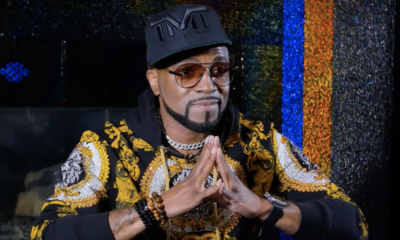

Producer Teddy Riley Comes Clean Regarding Fake Songs From Posthumous Michael Jackson Album
-


Huge Win for Michael Jackson Fan as Supreme Court Rejects Sony’s Free Speech Defense in “Fake” Songs Lawsuit
-
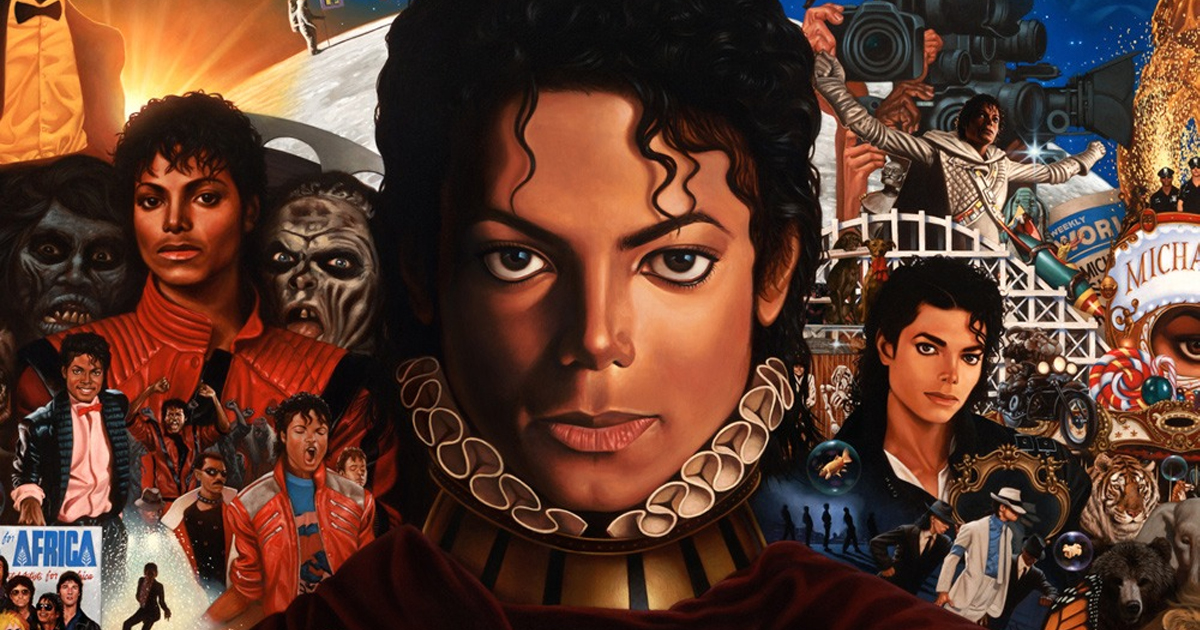

Supreme Court Judge Grills Sony Lawyer Over ‘Contradictory’ Arguments in Alleged Michael Jackson Fraud
-


Court Date Set in Supreme Court Battle Over Legal Right to Sell Alleged Michael Jackson Forgeries
-
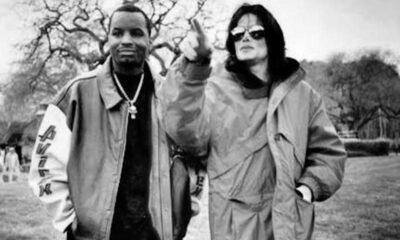

Michael Jackson Meets America in Invincible Album Outtake ‘A Place With No Name’
-


First Amendment Coalition to Support Sony and the Jackson Estate in Fake Songs Lawsuit
Subscribe to Podcast
Articles


Producer Teddy Riley Comes Clean Regarding Fake Songs From Posthumous Michael Jackson Album
Legendary producer Teddy Riley has spoken out against the controversial Michael Jackson album he worked on after the pop star’s...


Huge Win for Michael Jackson Fan as Supreme Court Rejects Sony’s Free Speech Defense in “Fake” Songs Lawsuit
Two ‘get out of jail free’ cards, used by lawyers for Sony to avoid facing the music in a consumer...


Alleged Forgeries Removed From Michael Jackson’s Online Catalog After 12 Years of Protests and a Fraud Lawsuit
Three songs alleged to have been falsely attributed to Michael Jackson were abandoned by the pop star’s estate and record...

Supreme Court Judge Grills Sony Lawyer Over ‘Contradictory’ Arguments in Alleged Michael Jackson Fraud
A lawyer defending Sony Music and the Estate of Michael Jackson in a consumer fraud lawsuit has today argued that...

Court Date Set in Supreme Court Battle Over Legal Right to Sell Alleged Michael Jackson Forgeries
Sony Music and the Estate of Michael Jackson will again fight for their right to sell alleged forgeries as authentic...


Invincible, ‘Xscape’ and Michael Jackson’s Quest for Greatness
Below is a chapter from my book Michael Jackson: Songs & Stories From The Vault, revised for this article. The full book...
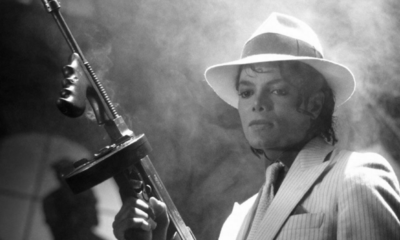

‘Blue Gangsta’ and Michael Jackson’s Fascination with America’s 20th Century Underbelly
Below is a chapter from my book Michael Jackson: Songs & Stories From The Vault, revised for this article. The full book...


Michael Jackson Meets America in Invincible Album Outtake ‘A Place With No Name’
Below is a chapter from my book Michael Jackson: Songs & Stories From The Vault, revised for this article. The full book...

First Amendment Coalition to Support Sony and the Jackson Estate in Fake Songs Lawsuit
There has been yet another twist in the class action lawsuit filed by Californian consumer Vera Serova against Sony Music...

Californian Government Joins Fraud Lawsuit Against Sony Music and Jackson Estate
The California state government has officially joined a class action lawsuit against Michael Jackson’s estate and record company. In a...


